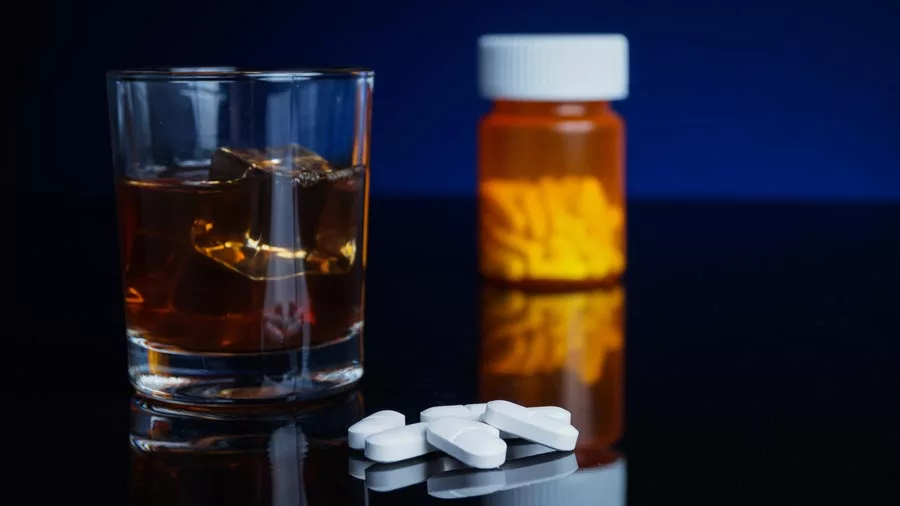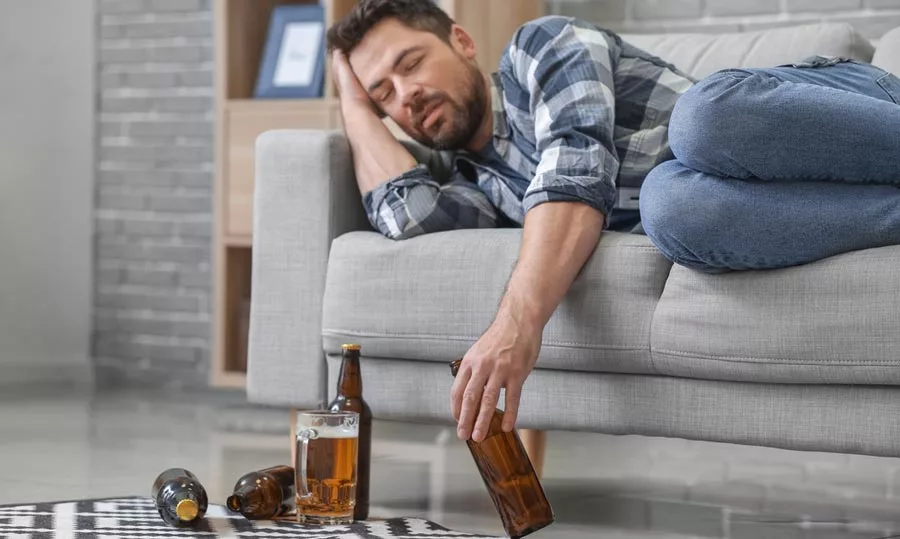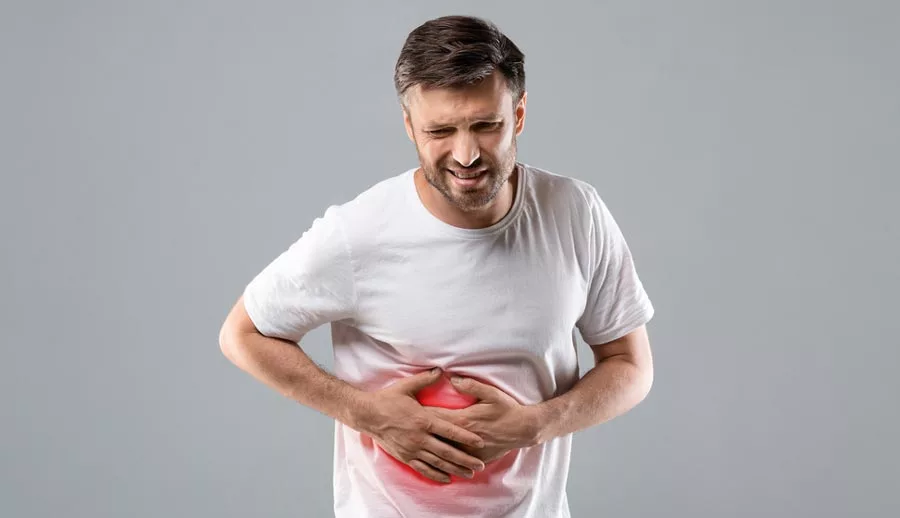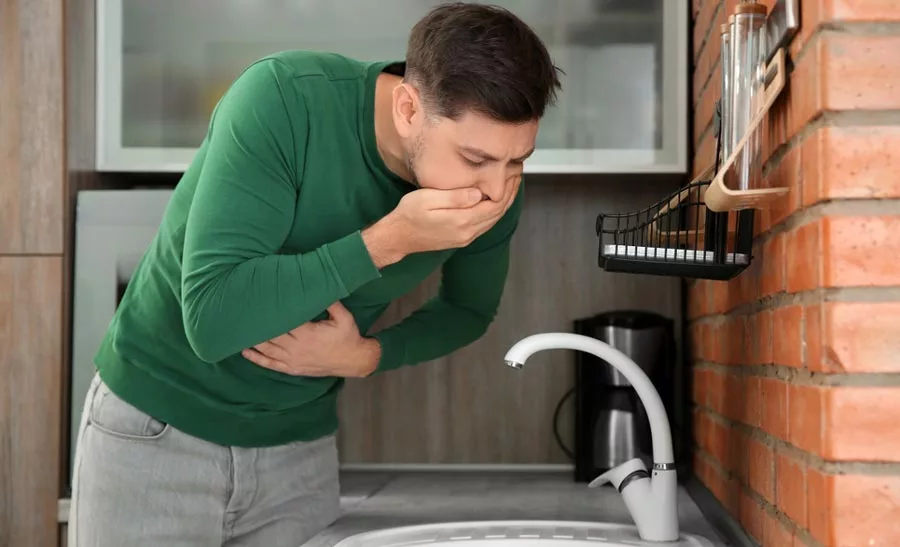Hydrocodone and Alcohol

The Dangers of Mixing Hydrocodone and Alcohol
There exists a certain level of danger from taking painkillers and drinking alcohol separately. Hydrocodone and alcohol are on the list of substances that lead to the greatest number of overdose deaths – and while they’re not at the top, there’s no doubting the dangers of overusing either of these substances.
Understanding the dangers of alcohol abuse and ingesting too much pain medication independent of one another would make it borderline insane to risk mixing the two. However, that’s exactly what happens to 1 in 7 people who die from an opioid or alcohol overdose.
Mixing alcohol with opioid addiction is just as deadly of a combination as any other warned-about cocktail that users risk their lives over each year – alcohol and methadone, fentanyl and Suboxone, alcohol and Suboxone, you name it. It seems that the further someone can take their substance abuse issue, the better, testing the limits daily in what is equated to a game of Russian Roulette.
If you know someone who is at risk of mixing hydrocodone and alcohol or have taken a chance and engaged in this practice yourself, don’t click away until you read this entire article.
And if it’s become a regular practice for you or some you care about, find out more about effective forms of treatment and get help with Exclusive Hawaii Rehab today!
Experience True Healing
Our deeply-caring staff and the surrounding natural beauty offer an unparalleled healing experience.
Hydrocodone and Alcohol: Double Central Nervous System Depressant
Generally speaking, all substances can be broken down into two major categories. It doesn’t matter what they do ultimately or the specifics of the intoxication while under the influence – a drug is usually classified as either a depressant or a stimulant.
Over a broad spectrum, it either slows you down or speeds you up. The stark contrast between the two creates a feeling known as speed-balling or the rapid shift between going up and going down. However, in the case of hydrocodone and alcohol, you’re taking what’s known as a double downer.
Both of these drugs are central nervous system depressants, and whether you’re aware of it or not, each causes difficulty breathing and respiratory depression in medium to large amounts taken separately. Taken together, the situation reaches a level where overdose isn’t just likely, but probable.
People who engage in this type of behavior, regardless of whether they’re taking hydrocodone recreationally or per a doctor’s orders, rarely give much thought to the dangers of mixing alcohol with opioid painkillers. However, the sobering fact is that in some states, as many as 29% of overdose deaths involve these two substances.
What Happens When You Abuse Alcohol

When you drink alcohol, several things take place within the body. First, your heart rate and blood pressure decline. Your central nervous system slows down, giving you the delayed reactions and response times you experience when you’re intoxicated.
Most people aren’t aware of the next fact. After drinking heavily for a few hours and reaching the point of what most people would consider “drunk,” your core temperature slowly begins to dip. In a normal setting, this usually isn’t that big of an issue.
However, if you’re in freezing cold weather or in a situation where you mix another depressant like hydrocodone – it can become life-threatening. Many people believe the exact opposite about alcohol to be true – that it warms your body temperature. However, this couldn’t be further from the truth.
The Lies that Alcohol Tells Your Body
This is only a temporary feeling. As you drink alcohol, you become flushed, sending blood to your cheeks and giving you a faux sense of warmth.
Have you ever noticed that an unusually high number of homeless people seem to perish from freezing to death? Alcoholism is rampant among America’s homeless population.
Many of these unfortunate individuals fall asleep outside during the winter months – in cold temperatures, albeit – but not normally low enough to cause death. However, many of these individuals fail to wake up because their body temperatures have dipped below a level that the human body can take.
This is why combining alcohol and a painkiller is such a deadly risk; as they create the same effect within the body, and your odds of experiencing a life-threatening situation are enhanced twofold.
What Happens When You Take Hydrocodone for Chronic Pain or Otherwise
When people ingest hydrocodone and other opioid painkillers, the same effects are at play regarding their nervous and respiratory systems.
Painkillers block the body’s signaling ability between the spinal cord and the brain. Your pulse rate slows down along with your breathing. This is what happens during opioid toxicity.
The receptors become so jumbled that your brain isn’t able to receive the proper signals that trigger you to breathe involuntarily. You lose consciousness, stop breathing, and your brain is deprived of oxygen, which typically ends up becoming the cause of death during an overdose.
Hydrocodone abuse is a common problem to this day, even amidst the fentanyl epidemic. Granted, physicians have decreased the rate at which they prescribe pain medicine, but the practice of overprescribing and the existence of “pill mills” are still alive and well.
Besides these dangers associated with mixing hydrocodone and alcohol, several more types of danger exist that put people who mix both alcohol and pain medicine.
Long-Term Dangers of Hydrocodone and Alcohol

Clearly, the most dangerous short-term risk of combining these two substances is death by overdose. The statistics back these claims up, and it’s a problem of epidemic proportions.
However, there’s a frightening dynamic involved regarding alcohol and pain medicine that’s not included in the statistics of those who perish from an overdose.
Many people make mixing these two substances a long-term practice. According to the CDC, more than half the people who abuse prescription medications also abuse alcohol. These long-term statistics may be difficult to track, but consider for a moment the number of users who suffer from deadly ailments caused by combining these two drugs.
Both Hydrocodone and Alcohol Cause Liver Damage
There’s more than enough evidence to prove the damage done to your liver over time by alcohol and painkillers independently. Liver cancer, hepatitis, and cirrhosis are all extremely common in the community of individuals who suffer from alcoholism.
The numbers may not be as high, but long-term mortality rates are likely heavily influenced by those who suffer life-threatening liver conditions as a result of taking prescription drugs as well.
Overloading the Liver
When the body metabolizes opioids, it’s done through the liver. Think of the liver as the filter for any pain medicine you take. This is why many long-term users of heroin and other opioids suffer from liver conditions.
Combining the two over a long-term period puts you on the fast track for developing one of many liver complications that potentially lead to death. Again, these statistics are more difficult to track because of control variables and other elements, but there are plenty of studies referencing this dynamic.
What are other potential long-term complications of combining these two depressants?
Experience True Healing
Our deeply-caring staff and the surrounding natural beauty offer an unparalleled healing experience.
Withdrawal Symptoms of Alcohol and Opioids
If you have any experience with detox and the withdrawal symptoms of hydrocodone and alcohol, you’re probably aware of the intensity of the two.
In fact, intense withdrawal symptoms from alcohol are deadly. And while withdrawals from opioids for people who take them for severe pain or otherwise don’t end up in death as frequently, fringe complications from opioid withdrawal can certainly be life-threatening – especially in those who suffer from co-occurring disorders.
Someone who abuses hydrocodone and alcohol in any form puts themselves at high risk of suffering from incredibly severe withdrawals during the detox process. The complications of attempting to detox from both of these substances together create the perfect storm of symptoms that can end up in tragedy.
The withdrawal symptoms of each are broken down in the section below.
Alcohol Withdrawal
During alcohol withdrawal, users experience an intense battery of symptoms over a 7 to 10-day period. These symptoms include:
- Vomiting
- Diarrhea
- Anxiety
- Paranoia
- Hallucinations
- Intense sweating
- Increased heart rate
- Dehydration
- DTs
- Seizures
- Coma
- Death
Now let’s look at the detox side effects of hydrocodone:
Hydrocodone Withdrawal

After abruptly discontinuing hydrocodone, many users experience the following:
- Dehydration
- Vomiting
- Increased heart rate
- Dehydration
- Paranoia
- Anxiety
- Intense Sweating
- Irritability
- Sleeplessness
Now combine these two events and imagine the strain put on your body during the detox period. Luckily, facilities like Exclusive Hawaii Rehab exist to help those going through these types of situations.
Experience True Healing
Our deeply-caring staff and the surrounding natural beauty offer an unparalleled healing experience.
Get Help for Alcohol and Hydrocodone Now
If you or someone you love abuses alcohol and hydrocodone, don’t attempt to detox alone. If the alcohol withdrawals aren’t fatal, the strain that the combination of the two puts on your body certainly can be.
At Exclusive Hawaii Rehab, we are well equipped to help those going through a battle with hydrocodone and alcohol. Over nearly two decades in operation, we’ve helped countless clients overcome substance use and find new and healthier ways of living.
If you or a loved one are struggling, please reach out to our Intake Coordination team for a confidential consultation today!